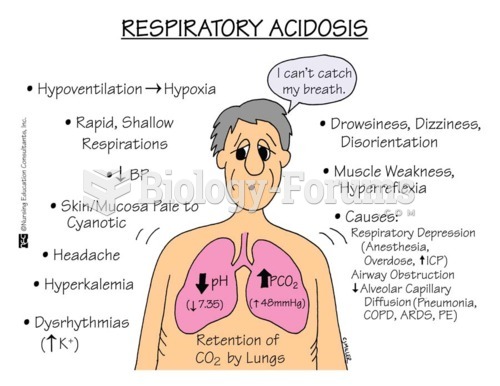|
|
|
All adverse reactions are commonly charted in red ink in the patient's record and usually are noted on the front of the chart. Failure to follow correct documentation procedures may result in malpractice lawsuits.
Pubic lice (crabs) are usually spread through sexual contact. You cannot catch them by using a public toilet.
During pregnancy, a woman is more likely to experience bleeding gums and nosebleeds caused by hormonal changes that increase blood flow to the mouth and nose.
Certain rare plants containing cyanide include apricot pits and a type of potato called cassava. Fortunately, only chronic or massive ingestion of any of these plants can lead to serious poisoning.
Drugs are in development that may cure asthma and hay fever once and for all. They target leukotrienes, which are known to cause tightening of the air passages in the lungs and increase mucus productions in nasal passages.
 Acute exacerbations of asthma can require management in the emergency department. The child is place
Acute exacerbations of asthma can require management in the emergency department. The child is place
 After excavation, recovered remains are screened to ensure that even tiny fragments are retrieved an
After excavation, recovered remains are screened to ensure that even tiny fragments are retrieved an





